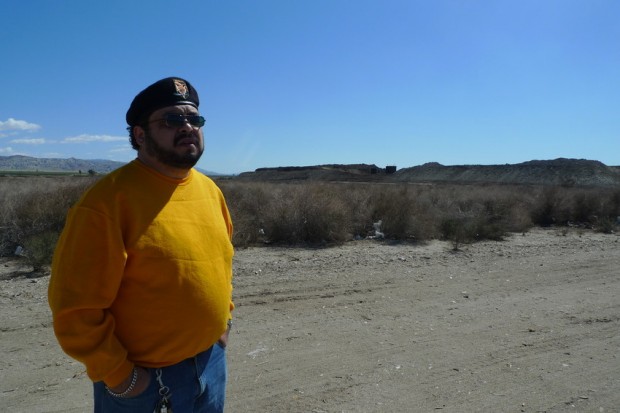
Editor's Note: The unincorporated community of Mecca in Riverside County has a host of environmental concerns, from well water with naturally-occurring arsenic to toxic dump sites. When people talk about environmental justice here, Eduardo Guevara is always cited as a leader in the community. But Guevara says that five years ago, after moving here from Mexicali, Mexico, he wasn’t involved in any kind of activism. After his wife was hospitalized twice for asthma, Guevarra learned that their environment might be contributing to his wife’s health problems. As part of our series “What’s Your Story?” we hear from Guevara about how he, his wife and his son started attending community meetings to get some answers.
Since no one had the [the answers as to why my wife got sick], I started to try to get them for, not only for me, but for her, and for my son.
And then we went to a meeting, where the Air Quality Management District was at the panel, and out of nowhere the kid is like, "You know what? I saw a kid reading a letter. I’m going to write one, and then I’m going to read it." You know, my son.
And he took the letter, went to the microphone, read it aloud. He said, "Hi, I’m Eduardo Guevara. I think that the government has to do something about the toxic things that they throw in Mecca. I am worried for my mom because she had asthma and because of those smells she could get asthma again. Thank you."
And then he finishes, and I say, if the kid is worried, I need to do something. It’s not only about me; now it’s him trying to do something because he’s worried for his mom. We need to go on. So we did.